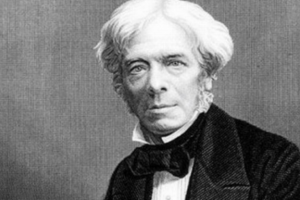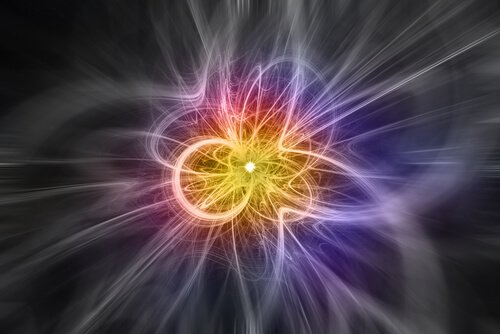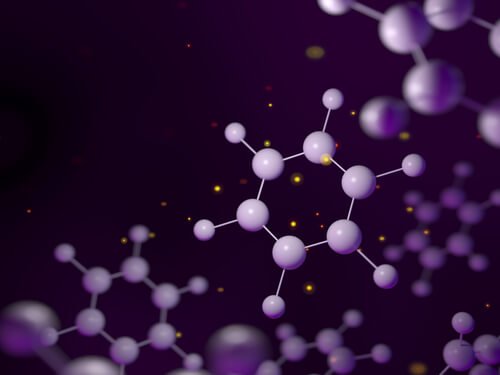Michael Faraday: An Amazing Physicist

Michael Faraday was a genius that changed the history of physics and chemistry. Without him, electrical engines wouldn’t even exist. An interesting fact about him is that he was self-taught.
He’s the man behind very important discoveries in the fields of electrochemistry and electromagnetism. For instance, he discovered benzene, a hydrocarbon molecule that makes up most of the plastic elements we use today.
Michael Faraday went from being a poor kid who worked hard to help support his family to being granted an honorary title of knighthood by Queen Victoria of the United Kingdom of Great Britain and Ireland due to his scientific contributions. However, what truly made him a great scientist was his perseverance and his passion for knowledge.
Michael Faraday: A humble child
Michael Faraday was born on September 22nd, 1791 in current downtown London into a humble family. His father was a farrier and his mother was a stay-at-home mom.
Faraday wasn’t able to pronounce his r’s and his teacher laughed at him because of this and punished him. His mother couldn’t stand that and thought that he’d be better off working for the family. Thus, she took him out of school. Michael Faraday’s story took a turn when he started to work for George Riebau, a bookbinder and bookseller in London, at the age of 14.
This work experience sparked an amazing intellectual curiosity in him. He started reading the books he sold incredibly fast. He spent seven years working and reading. During this time, he found Isaac Watts’ work, which filled him with enthusiasm, and read many scientific books that interested him in electrical phenomena even more.

A life dedicated to science
At the age of 19, Faraday joined The City Philosophical Society, a group made up of young people who loved science. John Tatum was the leader and explained the principles of electricity, chemistry, and physics in their late-night meetings.
There, Faraday met Elmer Humphry Davy, a member of the Royal Institution, who gave Faraday free tickets to his conferences.
The notes he took during those years were included in a 300-page book that he later sent to Davy. The latter lost his sight due to an accident and decided to hire Faraday as his secretary. Then, he promoted him to chemistry assistant at the Royal Institution. He was constantly humiliated by Davy’s wife, but he still never lost interest in learning from his mentor.
In 1815, Michael Faraday started teaching everything he’d learned in those years. He also published his first chemical work, wrote several articles, and spoke at conferences. By 1820, he had already built a reputation for himself.

Faraday’s work is everlasting
The director of a scientific journal called Annals of Philosophy asked him to write about several scientists that were experimenting with electromagnetism. In order to do that, Michael Faraday carried out their experiments, which lead to his biggest discoveries. In particular, he discovered how to use electrical energy as mechanical energy.
In 1825, Faraday became the director of the Royal Society, replacing his mentor Elmer Humphry Davy. That same year, he discovered benzene, which was the highlight of his entire scientific career. Later on, he made new discoveries on the characteristics of metals and magnetism and formulated the popular “Faraday laws”.
As director of the Royal Society, he started giving free conferences for young learners. He also made his associates do the same. His goal was to reach people who didn’t have access to education. In 1832, the University of Oxford granted him a Doctor of Civil Law degree. In 1839, he had a nervous breakdown, from which he recovered later on.
Michael Faraday officially retired in 1858 and lived in a house that the Queen gifted him until his death in 1867.
A moon crater was named after him to remind us how incredibly helpful and relevant his scientific contributions were.
Michael Faraday was a genius that changed the history of physics and chemistry. Without him, electrical engines wouldn’t even exist. An interesting fact about him is that he was self-taught.
He’s the man behind very important discoveries in the fields of electrochemistry and electromagnetism. For instance, he discovered benzene, a hydrocarbon molecule that makes up most of the plastic elements we use today.
Michael Faraday went from being a poor kid who worked hard to help support his family to being granted an honorary title of knighthood by Queen Victoria of the United Kingdom of Great Britain and Ireland due to his scientific contributions. However, what truly made him a great scientist was his perseverance and his passion for knowledge.
Michael Faraday: A humble child
Michael Faraday was born on September 22nd, 1791 in current downtown London into a humble family. His father was a farrier and his mother was a stay-at-home mom.
Faraday wasn’t able to pronounce his r’s and his teacher laughed at him because of this and punished him. His mother couldn’t stand that and thought that he’d be better off working for the family. Thus, she took him out of school. Michael Faraday’s story took a turn when he started to work for George Riebau, a bookbinder and bookseller in London, at the age of 14.
This work experience sparked an amazing intellectual curiosity in him. He started reading the books he sold incredibly fast. He spent seven years working and reading. During this time, he found Isaac Watts’ work, which filled him with enthusiasm, and read many scientific books that interested him in electrical phenomena even more.

A life dedicated to science
At the age of 19, Faraday joined The City Philosophical Society, a group made up of young people who loved science. John Tatum was the leader and explained the principles of electricity, chemistry, and physics in their late-night meetings.
There, Faraday met Elmer Humphry Davy, a member of the Royal Institution, who gave Faraday free tickets to his conferences.
The notes he took during those years were included in a 300-page book that he later sent to Davy. The latter lost his sight due to an accident and decided to hire Faraday as his secretary. Then, he promoted him to chemistry assistant at the Royal Institution. He was constantly humiliated by Davy’s wife, but he still never lost interest in learning from his mentor.
In 1815, Michael Faraday started teaching everything he’d learned in those years. He also published his first chemical work, wrote several articles, and spoke at conferences. By 1820, he had already built a reputation for himself.

Faraday’s work is everlasting
The director of a scientific journal called Annals of Philosophy asked him to write about several scientists that were experimenting with electromagnetism. In order to do that, Michael Faraday carried out their experiments, which lead to his biggest discoveries. In particular, he discovered how to use electrical energy as mechanical energy.
In 1825, Faraday became the director of the Royal Society, replacing his mentor Elmer Humphry Davy. That same year, he discovered benzene, which was the highlight of his entire scientific career. Later on, he made new discoveries on the characteristics of metals and magnetism and formulated the popular “Faraday laws”.
As director of the Royal Society, he started giving free conferences for young learners. He also made his associates do the same. His goal was to reach people who didn’t have access to education. In 1832, the University of Oxford granted him a Doctor of Civil Law degree. In 1839, he had a nervous breakdown, from which he recovered later on.
Michael Faraday officially retired in 1858 and lived in a house that the Queen gifted him until his death in 1867.
A moon crater was named after him to remind us how incredibly helpful and relevant his scientific contributions were.
All cited sources were thoroughly reviewed by our team to ensure their quality, reliability, currency, and validity. The bibliography of this article was considered reliable and of academic or scientific accuracy.
- CROWTHER, J. 497-Humphry Davy.-Michael Faraday (hombres deficiencia británicos del siglo XIX). 509 J. Prescott Joule. W. Thomson. J. Clerk Maxwell (hombres deficiencia británicos del siglo XIX).
This text is provided for informational purposes only and does not replace consultation with a professional. If in doubt, consult your specialist.







